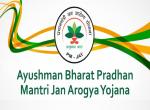When Guru Govind Singh, the Tenth Guru, ruled that he would be the last human guru and the Guru Granth Sahib itself would be the eternal Living Guru, he said that in case of any doubt search within the Shabad, or the Guru Granth Sahib and all doubts would be resolved. To me the Constitution of India is the Shabad and when I have any doubt I go back to the Constitution and it speaks loud and clear to me. The whole Constitution is designed to make India a secular republic in which there is justice, liberty, equality and fraternity for all, in which there is total equality before law and in which the dignity of the individual is of paramount importance. The Constitution, in order to promote equality, abolishes untouchability through Article 17 and through Article 18 it abolishes titles. Regardless of birth and circumstance all Indians are equal and in this there is no room for differentiation on account of religion, caste, class, region or any other factor which divides man from man.
How are we governed? India is a Union of States and the bounds between the Union, or the Centre and the States are prescribed by the Seventh Schedule of the Constitution which gives the exclusive jurisdiction of Parliament and of the State Legislatures within their respective domains and the concurrent jurisdiction for both regarding those items which fall within the Concurrent List. Within the framework of the States by the 73rd and 74th Amendments of the Constitution have been constituted rural and urban local bodies, which form the third tier of government. The Preamble makes India a democratic republic and government at all levels is to be conducted by democratically elected people who will then elect the Council of Ministers in the Centre and the States and will constitute the village or town council, as the case may be. The execution and implementation of decisions of the elected representatives of the people would be done by officers appointed by the President or the Governor, as the case may be and they, too, will function independently as per the Rules of Business under Article 77 in the case of the Government of India and Article 166 framed for the Government of a State. Every Indian above the age of eighteen is entitled to be included in the electoral roll and cannot be excluded on grounds of religion, race, caste, sex or any of them under Article 325. There will be a single electoral roll and the Constitution specifically prohibits the preparation of a special electoral roll. Under Article 326 election to the House of the People of Parliament and the Legislative Assemblies of States is to be on the basis of adult franchise, which is universal. The Constitution specifically prohibits any discrimination on any grounds whatsoever in the matter of elections, which are the very basis for the formation of government. From this one can infer that the theme of the Constitution is that we move towards a casteless, classless, secular society in which neither religion, nor sex, nor domicile will in any way influence or determine the course of elections.
Having said this one would also have to look at the ground reality. The State of Karnataka has two dominant castes, the lingayats and the vokkaligars. Deve Gowda, former Prime Minister and Sadanand Gowda, the outgoing Chief Minister of Karnataka are vokkaligars, BSR Yeddiyurappa, on the other hand, is a lingayat. Yeddiyurappa had to resign as Chief Minister because he was arrested in a case of corruption and is even now facing investigation on charges of corruption framed by the Supreme Court of India. When he was removed from office, virtually kicking and screaming, he insisted that Sadanand Gowda be made Chief Minister. The BJP national leadership conceded this demand. Thereafter Yeddiyurappa wanted to return to office and when this was not allowed he sulked and instigated a revolt in BJP. Instead of expelling him BJP once again succumbed to his demand that Sadanad Gowda should be removed and Jagadish Shettar, a lingayat be made Chief Minster. The top leadership of BJP again gave in and Gowda is out and Shettar is in. Neither the merit of Gowda nor of Shettar has been the determinant of who should be Chief Minister. What has triumphed is caste equations. One can now look forward to a vokkaligar revolt. What happens to good government in Karnataka is one one’s concern.
Let us move to Uttar Pradesh and the elections held earlier this year. This is one State, in population India’s largest State, where caste has been the determinant of electoral politics and equations. The Samajwadi Party has Yadavs, Gujjars and Ahirs as its solid vote base. The BJP and the Congress are considered upper caste parties, though Mayawati and BSP did play the spoiler by deliberately giving seats in substantial numbers to the Brahmins and Rajputs. The fairly sizable population of Muslims in Uttar Pradesh was wooed by the Congress and the Samajwadi Party. The Congress has always looked upon the Muslims as creatures of its own backyard, whose votes could be taken for granted. However, there is such total disillusionment with the Congress among the Muslims that in Uttar Pradesh they have substantially drifted towards the Samajwadi Party and in Bihar towards the Janata Dal (United). The Congress has been left high and dry. That the Congress is quite happy to play the religious card is proved by the fact that during the entire election campaign Rahul Gandhi was paraded in the Muslim dominated areas sporting an emerging beard of a fortnight’s growth which gradually thickened as the days passed. If a beard makes one a Muslim, then many of the Syrian Orthodox priests of Kerala and people such as Acharya Giriraj Kishore would win hands down because their beards compete with the best that a Mullah can sport. Crocodile tears over the Batala House encounter, false promises about what Congress will do for the Muslims failed because the Muslim refuses to be considered part of a homogenous group whose only desire is to be appealed to as a Muslim. He refuses to be a vote bank which can be taken for granted. He is an Indian, a human being and an individual and wants to be treated as such.
The Indian Muslim of 2012 is not the same person as the Muslim of 1947. Because India is secular and because its leadership, by and large, is committed to secularism, the majority of Indian Muslims has voted with their feet to be Indians and have refused to migrate to Pakistan. In population India is the second largest Islamic country in the world after Indonesia. The Muslim population is so large that it cannot really be called a minority and the Muslim is asserting his rights in the same manner as any other citizen of India. He wants security, justice, equality of opportunity, he wants his children to be educated, he wants his cut of the development pie and he wants a share of power. These are the legitimate aspirations of every Indian and any party which fails to recognise this has no business to be in the game of politics in India. This lesson the Congress has not learnt and it will never learn. Even Gujarat, whose name is anathema of all our neoliberals, has reached the stage where many Muslims are prepared to move forward from the horrors of 2002, because the results of purposive government has been that the Muslims are now beginning to feel physically secure and certainly they are not left untouched by the economic development of that State. Paradoxically, the very State which conjures up vision of the horrors of 2002 is also the State where about 150 Muslims were elected on a BJP ticket in the local government elections. In Gujarat the Muslim community is moving forward in the matter of education and economic development. A secular party such as the Congress can surely do much more than this. It can prove that it no longer thinks of the Muslims as a collective vote bank and instead desires to move forward to treat the Muslims as individual citizens whose support it seeks.
What is preventing this? It is Congress which set up the Sachar Committee, whose mandate was to look at the position of the minorities in India. But the said committee ended up with only looking at the position of Muslims. The committee has remarked that in the matter of education, employment, holding of political office and economic development the Muslim is far behind the Hindu and that he needs special assistance to be able to catch up. The tenor of the report is that government and the majority community have both discriminated against Muslims, denied them equal opportunity in the matter of education and employment and, therefore, the Muslim is virtually a second class citizen in India. Justice Rajinder Sachar never really asked the question, “Why are the Muslims backward?” The Committee’s report itself states that compared to the majority community the level of education amongst Muslims is low. In every State of India the female literacy rate of Muslims is lower than the average of female literacy in that State. Fewer Muslim girls go to school than, for example, Hindu or Christian girls. Even when we were in the throes of the horrors of partition, no one in India had said that Muslim children, especially girls, should not be educated. Because there was no legal compulsion to educate, because India had no Truancy Act whereby absence from school could invite a penalty for the parents, school enrolment of Muslims, especially girls, definitely lagged behind the admission rate for other communities. Naturally Muslims lag behind other communities in the matter of higher and technical education also and this directly affects their employment profile because so many of them are unemployable. This has to be corrected very fast if Muslims are to keep on par with other communities. Certainly reservation in jobs will not give the desired results because the few Muslims who are already educated would monopolise jobs, leaving the needy in the community high and dry.
The parties which call themselves secular, the Congress, Samajwadi Party, Trinamool Congress, etc., should have launched a campaign for bringing Muslim children to school and ensuring that they completed their education. An educated person cannot be denied employment because if India cannot employ him or her, jobs would be found somewhere else in the world. From 1923 the Madras Presidency, which included Tamil Nadu, Andhra Pradesh minus Telangana and Hyderabad, Malabar District in Kerala and Mangalore in Karnataka, had a reservation policy which virtually denied Brahmins an entry into higher education and government jobs. There was no Sachar Committee to look at the plight of the Brahmins, but the community collectively decided that regardless of what happened to the then current generation, the children would be educated. Denied admission in Tamil Nadu they migrated in large numbers to wherever they could be admitted in India. Universities in Madhya Pradesh, Maharashtra, Uttar Pradesh were flooded with Tamil students and today children of the community virtually rule Silicon Valley in the United States of America. The way to eliminate religion as a determinant of politics is to make the Muslims take the educational path to progress and instead of appealing to narrow religious sentiments the parties which seek power should persuade backward communities like the Muslims take advantage of what the education system has to offer. In the long run this would pay rich dividends to the community, the country and our political parties.
The use of religion, caste and class as a political weapon is potentially fraught with danger. When differences are highlighted base passions are ignited and caste wars in India are endemic. The result of the caste divide in Bihar was utter lawlessness in the State and this has pushed Bihar’s progress back by half a century. Nitish Kumar’s greatest achievement is that he is able to cut through caste barriers and has launched Bihar on a development path which unites rather than divides. The significant improvement in law and order in Bihar is not necessarily because of better policing but because of more impartial policing and the Chief Minister’s efforts to put development above caste considerations.
The most dangerous form of divisiveness is religion. The post Godhra riots in Gujarat in 2002 were by no means the worst in that State’s history. The 1969 riots lasted longer and took a larger toll of life. Maharashtra, especially the city of Bombay, has experienced some of the bloodiest communal riots in India, almost all of them under a Congress regime. What set the Gujarat riots apart is the allegation of State patronage of the riots. This has not been proved and at least in North Gujarat and Saurashtra either there were no riots or the district administration acted firmly and promptly to nip the trouble in the bud. In Central and South Gujarat, on the other hand, there was a real communal divide and there the riots were more prolonged. The fact that since 2002 there have been no major riots in Gujarat shows that the Chief Minister has since encouraged effective law enforcement and that the 2002 riots were an unfortunate episode which is being blown out of proportion. However, the fact remains that in Central and South Gujarat there is a Hindu-Muslim divide and that is the principal cause of riots in that part of the State. The lesson to us is that if the divide continues it is inevitable that violence will occur. Why blame the Muslim League and Jinnah for partition of the country when right from Gram Panchayat up to Parliament all our politicians are busy playing the game of setting caste against caste, religion against religion, all for the sake of a few votes. The Indian State is capable of containing and eliminating separatist movements, terrorism, militancy and even violent Naxalism. It is not these factors which will destroy India. It is the politics of divisiveness, religion, caste, class, regionalism which is posing the real danger to the integrity of our nation. If the political parties decide to fight elections on the basis of ideology, programmes and plans instead of flaunting the caste and religious factors, most of the problems of India will disappear and certainly the country will no longer be split apart by religion, caste, class, or region.
How deeply is caste entrenched? In the upcoming presidential election one candidate, P.A. Sangma, is projecting himself as a tribal, a Christian and a North Easterner. The BJP is doing the same for Sangma. There is not a word about how as Chief Minister of Meghalaya, as an Union Minister and Speaker of the Lok Sabha Sangma put in a sterling performance which is no less than that of Pranab Mukherji. Ethnicity in this case rather than caste, minority status as a Christian and the regional appeal of the North East are the dominant factors in the election campaign. Does this promote equality, secularism and rational politics? The whole campaign for reservation for other backward classes, which is a thinly disguised cover for intermediate castes, is directly aimed at further entrenching the caste system in our psyche. When we take a highly competitive examination like the Civil Services Examination, ultimately the selection is of fifty percent of those who are neither SC, nor ST, nor OBC. The general category, therefore, becomes another caste. The OBCs are resented by SC and ST people because reservation for OBCs cuts into their own employment opportunities. To this witch’s brew we now want to add reservation for Muslims. There is already a demand from Christian groups that members of the SC who lost their status on conversion to Christianity should be recognised as Christian dalits and given all the concessions available to a scheduled caste, notwithstanding the fact that caste is a function of the Hindu religion and does not apply to any other religion.
They say that a house divided cannot stand. Our politicians are using a sledge hammer, a battering ram to cause our house to splinter so that the whole nation gets divided and sub-divided between religion, caste and region. Let us not discount regionalism because it is this which has led the movements such as those for Vidarbha, Telangana, Bodoland, Gurkhaland, separatism as in Kashmir and other forms of violent militancy in different parts of the country. Such fissiparous tendencies can only be combated if we pull ourselves back from the brink of fragmentation caused by religion, caste, class and regionalism.
Published Date: 12th July 2012









Post new comment